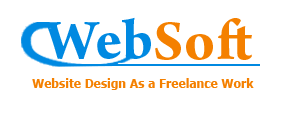In the digital-first world of today, content is the lifeblood of media companies. Whether you run an online magazine, a news portal, or a broadcasting network, your success depends on how effectively you create, manage, and distribute content. At the heart of this process lies the Content Management System (CMS). With so many options available, choosing the best CMS for media companies can feel overwhelming. However, with the right approach and understanding of your business needs, you can identify a platform that supports your growth, enhances productivity, and engages your audience effectively.
Why the CMS Matters for Media Companies
A CMS is more than just a tool for publishing articles. For media companies, it functions as a central hub where content creators, editors, designers, and marketers collaborate. The best CMS:
- Handles high volumes of content across multiple formats (articles, videos, podcasts, and images).
- Supports rapid publishing and real-time updates for breaking news.
- Scales seamlessly to handle sudden spikes in traffic.
- Integrates with SEO and analytics tools to improve visibility and decision-making.
- Ensures security for sensitive editorial data and digital assets.
Choosing the right CMS is essentially choosing the backbone of your digital operations.
Factors to Consider When Choosing a CMS
Before settling on a platform, media companies should evaluate their needs against the following critical factors:
1. Ease of Use and Collaboration
Media companies often employ large teams with varying technical skills. A good CMS should have an intuitive interface that allows writers, editors, and multimedia producers to work efficiently without requiring advanced technical knowledge. Features like role-based access, editorial calendars, and workflow management are essential for smooth collaboration.
2. Scalability and Performance
Traffic on media sites is often unpredictable. A breaking news story or viral video can attract millions of visitors in minutes. The best CMS for media companies must be scalable, with performance optimization options such as caching, Content Delivery Network (CDN) support, and cloud hosting compatibility.
3. Multimedia and Multi-Channel Support
Modern audiences consume content in multiple formats—text, video, podcasts, and infographics—across platforms like websites, social media, and mobile apps. A CMS should support diverse media formats and make it easy to repurpose content across different channels.
4. SEO and Marketing Integration
Visibility is key for media companies. The CMS should be SEO-friendly, offering clean URLs, metadata management, and integration with popular SEO plugins or built-in tools. Additionally, compatibility with analytics and marketing automation tools ensures that businesses can track performance and optimize outreach.
5. Customization and Flexibility
Every media company has its unique identity and operational model. A customizable CMS—through themes, plugins, or custom development—ensures your website design, features, and workflows align with your brand and strategy.
6. Cost-Effectiveness
Budgets vary across startups and established media houses. Some CMS platforms are open-source and free, requiring investment only in hosting and customization, while others come with licensing fees. Evaluate the total cost of ownership, including setup, training, maintenance, and scalability.
7. Security and Reliability
With cyber threats on the rise, security is a top concern. The CMS should provide regular updates, robust user access controls, SSL support, and backup options. Reliable performance also ensures that downtime is minimized, protecting both revenue and reputation.
Popular CMS Options for Media Companies
Several CMS platforms dominate the market, each with strengths and limitations. Here’s a breakdown:
1. WordPress
- Strengths: Highly flexible, user-friendly, and supported by thousands of plugins and themes. It powers global media brands like BBC America and TechCrunch. Excellent for SEO, multimedia support, and scaling with the right hosting.
- Limitations: Requires ongoing maintenance and security monitoring due to its popularity as a hacking target.
2. Drupal
- Strengths: Known for robust security and scalability. Suitable for large enterprises managing complex content workflows.
- Limitations: Steeper learning curve and requires more technical expertise to set up and manage.
3. Joomla
- Strengths: Flexible and good for multilingual sites, with strong community support.
- Limitations: Less beginner-friendly than WordPress and with fewer plugins available.
4. Proprietary CMS Platforms (e.g., Adobe Experience Manager)
- Strengths: Enterprise-level functionality, advanced personalization, and integration with other corporate tools.
- Limitations: High licensing and operational costs, which may not suit smaller media companies.
Steps to Choosing the Best CMS for Your Media Business
- Define Your Needs: Clarify your content strategy, audience reach goals, and team structure.
- Set a Budget: Include not just licensing or hosting fees but also development, training, and future scaling costs.
- Evaluate Features: Match your requirements against the CMS features discussed earlier—collaboration, multimedia support, SEO, and security.
- Test the Options: Many CMS platforms offer demo versions or trial periods. Experiment with them to see which feels intuitive and meets your workflow needs.
- Consider Long-Term Growth: Choose a platform that will scale with your business rather than limit you in a few years.
Final Thoughts
Selecting the best CMS for media companies is not about finding a one-size-fits-all solution—it’s about aligning your business needs with the strengths of the platform. WordPress stands out for its flexibility and ease of use, Drupal for enterprise-level security and scalability, and proprietary solutions for businesses with larger budgets and complex requirements.
Ultimately, the best CMS is the one that empowers your team to create engaging content efficiently, handles traffic demands reliably, and supports your long-term growth. With careful evaluation and planning, your media company can build a digital foundation that ensures success in today’s competitive landscape.

